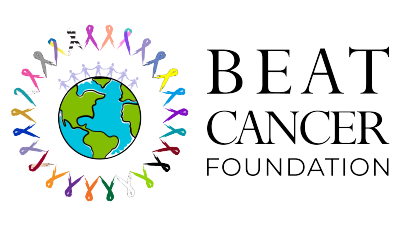
Retinoic Acid (Accutane - Retinol)

Retinoic Acid (Accutane - Retinol): An Off-Label Cancer Treatment
Unleashing the Power of Retinoic Acid in Cancer Treatment
Retinoic acid, derived from vitamin A, has long been recognized for its potential in controlling cell growth and promoting cancer cell death. Isotretinoin, also known as 13-cis-retinoic acid or Accutane, was originally developed as an acne treatment. However, it has recently gained attention for its ability to restrict the regrowth of cancer stem cells, particularly in brain cancer.
The Science Behind Retinoic Acid and Retinol
Vitamin A, or retinol, is an essential nutrient for overall health. Retinoic acid, a metabolite of vitamin A, belongs to a group of compounds called retinoids. These compounds are required for the healthy development and differentiation of cells in all chordate animals, from fish to humans. Although excessive vitamin A can cause toxicity in the body, retinoic acid can be safely concentrated to achieve the desired effects.
Retinoic acid plays a crucial role in cell development, differentiation, and cancer treatment. Research has shown that retinoic acid can suppress various types of cancer, including lung, prostate, breast, ovarian, bladder, oral, and skin cancers. Low and high doses of retinoic acid may induce cell cycle arrest and apoptosis of cancer cells, respectively. The molecular mechanisms of retinoic acid in controlling cancer cell fate involve common cell cycle inhibiting proteins, such as p27 and the newly discovered Cdk5 (1).
The Many Benefits of Retinoic Acid in Cancer Treatment
As an antioxidant, retinoic acid has significant effects on cell growth, differentiation, and apoptosis in cancer. It has been shown to suppress a variety of cancers, including brain, lung, melanoma, prostate, breast, ovarian, bladder, oral, and skin cancers (1).
Retinoic acid also offers numerous signaling metabolites that can promote the differentiation of repair stem cells into normal body cells. This has led to the hypothesis that retinoids could potentially reverse cancer stem cells into normal cancer cells, or even healthy cells. In fact, a 2015 study revealed that vitamin A could reverse cancer stem cells in pancreatic cancer, a condition known for its high levels of cancer stem cells (2). The researchers suggested that retinoic acid could be highly beneficial when used alongside chemotherapy treatments.
Vitamin A is available in various food sources, such as cod liver oil, beef liver, carrots, sweet potatoes, red peppers, black-eyed peas, watermelon, dried apricots, mango, and tomato juice. It can also be safely synthesized in the body from beta-carotene.
Dr. Young S. Kim, head of cancer and nutrition at the National Cancer Institute (NCI), includes vitamin A in her list of nine compounds that can slow down cancer and prevent recurrence. Activation of the retinoic acid signaling pathway has been shown to both prevent and potentially correct cancer, reversing pre-malignant epithelial lesions, for example. Disruption of this pathway has been linked to blood, lymph, and brain cancers, as well as medulloblastoma (3).
Research on bone marrow involvement in blood and lymph cancers has demonstrated that cancer stem cell strength is achieved by blocking retinoid signaling action, which also promotes drug resistance (4).
Accutane: A Potential Off-Label Cancer Treatment
Accutane, an acne medication containing 13-cis-retinoic acid, has been approved for over 25 years. It works by reducing oil production in the skin and promoting skin renewal. Accutane has also been used as a chemotherapy agent due to its highly concentrated retinoic acid content, which is up to 100 times more potent than vitamin A.
Accutane's mechanism of action involves binding to retinoic acid receptors (RAR) and retinoid-X-receptors (RXR) on the cell nucleus, effectively blocking cell growth (6). Professor Ben Williams used Accutane as part of a package of repurposed drugs to successfully treat his glioblastoma brain cancer in 1998. Not only can Accutane block cancer cell growth and prevent recurrence, but when combined with resveratrol, it can also transform cancer stem cells into normal cancer cells (5).
However, it is important to note that Accutane has been associated with numerous side effects and has been withdrawn from wide circulation by its manufacturer, Roche, due to concerns related to inflammatory bowel syndrome (IBS).
The Role of Vitamin A and Accutane in Cancer Treatment
Retinoids, including vitamin A, have demonstrated anti-cancer effects by interacting with cancer-forming pathways, such as estrogen signaling in breast cancer. However, cells rapidly metabolize retinoids, and epigenetic changes can cause tumors to become retinoid resistant. As a result, using retinoids as an anti-cancer treatment requires a combination of other drugs and natural compounds that can also block methylation and histone increases.
In the case of neuroblastoma, children with high-risk conditions have been treated with isotretinoin (13-cis-retinoic acid) for six months after undergoing chemotherapy and stem-cell transplantation. This treatment has been shown to reduce the risk of recurrence, with the drug administered in pulses—two weeks on, two weeks off. Scientists are currently working to develop new retinoid-based drugs with fewer side effects (5).
Long-term use of Accutane is not recommended, as there have been reports that it can cause cancer—specifically colorectal cancer and some types of leukemia—after several years of use (6).
In conclusion, retinoic acid and Accutane have shown promising results in the fight against cancer. However, their use must be carefully monitored and combined with other treatments to maximize their effectiveness while minimizing potential side effects.
References:
“Knowing all your treatment options could be life-saving!”
Location
Sheridan, WyomingTogether, we can beat cancer
Thank you for your interest in the Beat Cancer Foundation. We are here to support you every step of the way in your cancer treatment journey. Please fill out the form below, and our team will be in touch with you shortly. Together, we can beat cancer. (307) 291-0991

